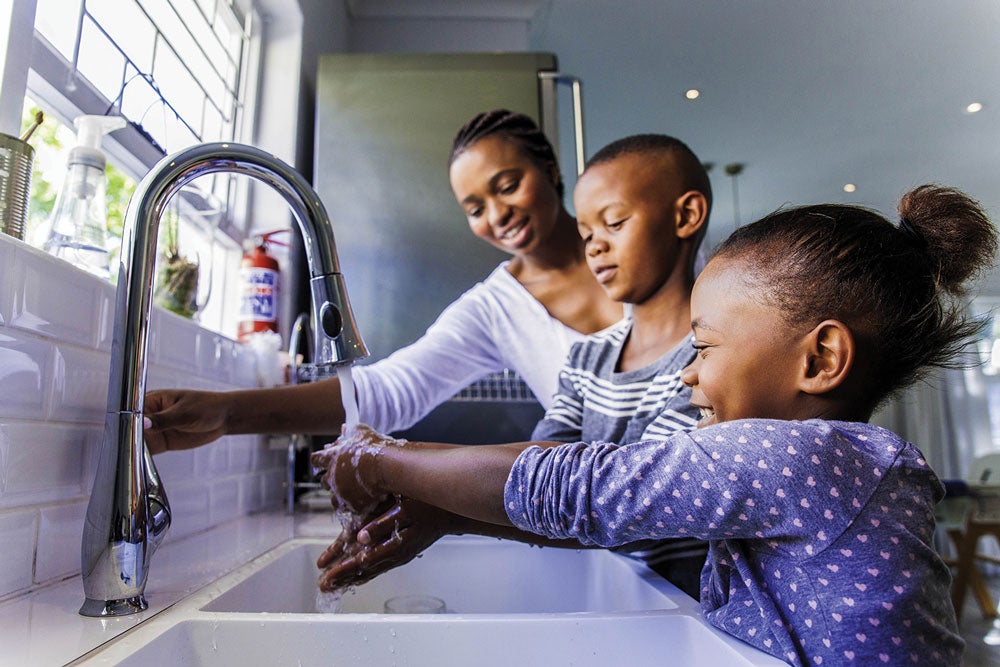MIND AND BODY: The importance of washing your hands
Published 9:01 am Friday, April 17, 2020
|
Getting your Trinity Audio player ready...
|
Regular handwashing is one of the best ways to remove germs, avoid getting sick and prevent the spread of germs to others.
Whether you are at home, at work, traveling or out in the community, handwashing with soap and water can protect you and your family.
Washing hands can keep you healthy and prevent the spread of respiratory and diarrheal infections from one person to the next.
Germs can spread from other people or surfaces when you:
— Touch your eyes, nose and mouth with unwashed hands;
— Prepare or eat food and drinks with unwashed hands;
— Touch a contaminated surface or objects;
— Blow your nose, cough or sneeze into hands and then touch other people’s hands or common objects.
You can help yourself and your loved ones stay healthy by washing your hands often, especially during these key times when you are likely to get and spread germs:
— Before, during and after preparing food
— Before eating food;
— Before and after caring for someone at home who is sick with vomiting or diarrhea;
— Before and after treating a cut or wound;
— After using the toilet;
— After changing diapers or cleaning up a child who has used the toilet;
— After blowing your nose, coughing or sneezing;
— After touching an animal, animal feed or animal waste;
— After handling pet food or pet treats;
— After touching garbage.
During the COVID-19 pandemic, you should also clean hands after you have been in a public place and touched an item or surface that may be frequently touched by other people, such as door handles, tables, gas pumps, shopping carts or electronic cashier registers/screens, etc. and before touching your eyes, nose or mouth
Washing your hands is easy.
Clean hands can stop germs from spreading from one person to another and throughout an entire community — from your home and workplace to child care facilities and hospitals.
Wet your hands with clean, running water (warm or cold), turn off the tap and apply soap.
Lather your hands by rubbing them together with the soap. Lather the backs of your hands, between your fingers and under your nails.
Scrub your hands for at least 20 seconds. Need a timer? Hum the “Happy Birthday” song from beginning to end twice.
Rinse your hands well under clean running water.
Dry your hands using a clean towel or air dry them.
You can use an alcohol-based hand sanitizer that contains at least 60 percent alcohol if soap and water are not available.
Washing hands with soap and water is the best way to get rid of germs in most situations.
You can tell if the sanitizer contains at least 60 percent alcohol by looking at the product label.
Sanitizers can quickly reduce the number of germs on hands in many situations. However, sanitizers do not get rid of all types of germs.
Hand sanitizers may not be as effective when hands are visibly dirty or greasy.
Hand sanitizers might not remove harmful chemicals from hands like pesticides and heavy metals.
Apply the gel product to the palm of one hand (read the label to learn the correct amount).
Rub your hands together.
Rub the gel over all the surfaces of your hands and fingers until your hands are dry. This should take around 20 seconds.
Remember: gloves carry germs. Gloves do not protect you if you do not use them properly.
When wearing gloves, think of them as your outer layer of skin that can become contaminated as well.
Every time you change tasks, you must wash hands and change gloves.
Clark County Health Department provides programs for the entire family, including Freedom from Smoking, WIC, HANDS, family planning, well-child /immunizations and home health care. For more information, call744-4482 or visit www.clarkhealthdept.org.






